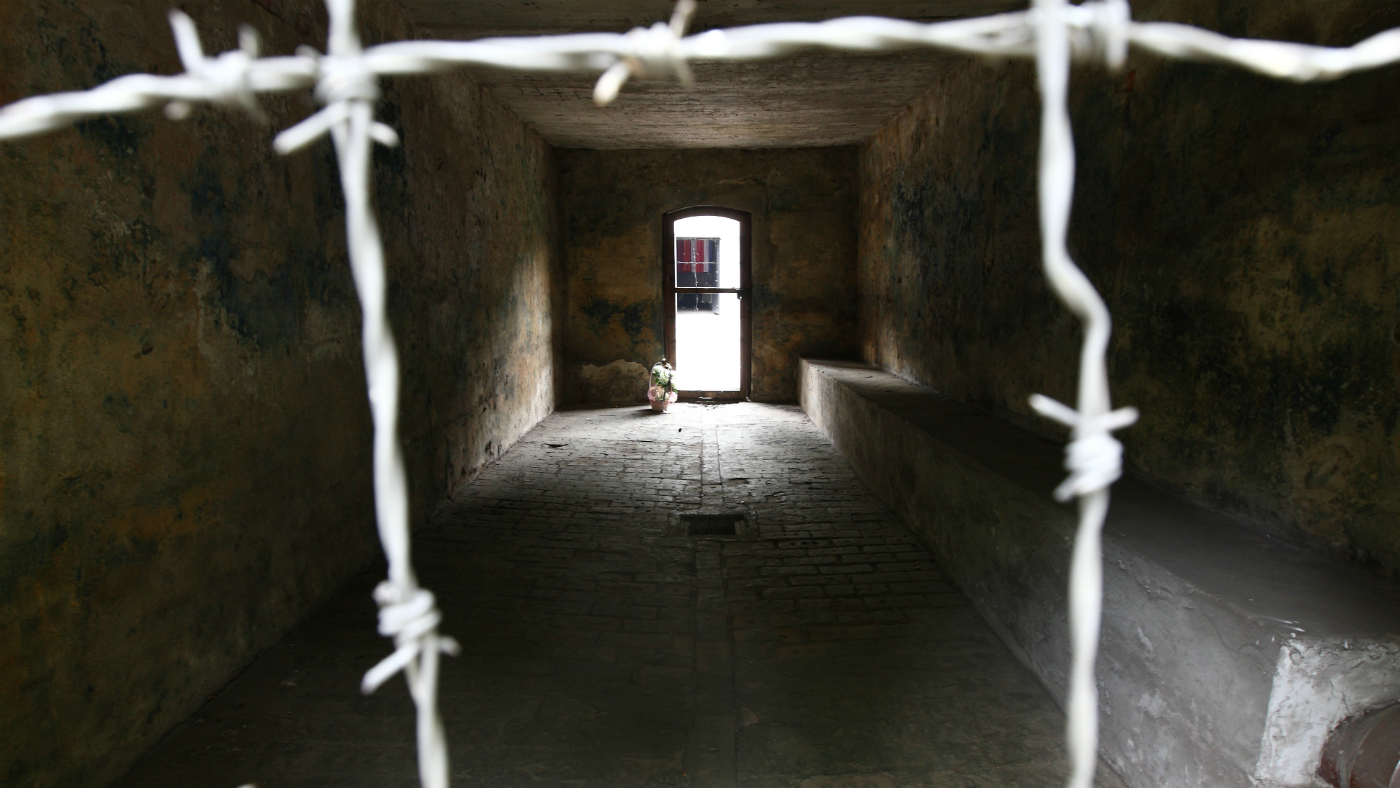Holocaust survivor groups condemn Nazi gas chamber artwork
Groups call on Polish president to condemn ‘Game of Tag’, filmed in Stutthof concentration camp in 1999

A free daily email with the biggest news stories of the day – and the best features from TheWeek.com
You are now subscribed
Your newsletter sign-up was successful
A controversial art installation showing a group of naked people playing a game of tag in one of the real gas chambers at a former Nazi concentration camp has caused “outrage” among Holocaust survivors’ groups, the Daily Mail writes.
The video, filmed in 1999 at Stutthof concentration camp in modern-day Sztutowo, Poland, was originally displayed at the Museum of Contemporary Art in Krakow in 2015.
It shows naked men and women chasing each other around and laughing in one of the camp’s gas chambers, where up to 65,000 people were killed during World War II.
The Week
Escape your echo chamber. Get the facts behind the news, plus analysis from multiple perspectives.

Sign up for The Week's Free Newsletters
From our morning news briefing to a weekly Good News Newsletter, get the best of The Week delivered directly to your inbox.
From our morning news briefing to a weekly Good News Newsletter, get the best of The Week delivered directly to your inbox.
Following protests by Jewish groups and community leaders, the museum housing the display removed the exhibition but later reinstated it, “defending it as falling under freedom of artistic expression”, the Jerusalem Post writes.
“It is the most disgusting thing I’ve seen in a long time,” Efraim Zuroff, the Wiesenthal Center’s chief Nazi hunter, told the site in 2015. “It is just revolting and a total insult to the victims and anyone with any sense of morality or integrity.”
“Game of Tag”, as the piece is called, was also displayed at an art museum in Estonia before being taken down following protests.
Holocaust survivor groups have now asked the Polish president to explain how artists were able to film in such a sensitive location.
A free daily email with the biggest news stories of the day – and the best features from TheWeek.com
In an open letter, the groups asked President Andrzej Duda if filmmaker Artur Zmijewski had been granted permission to film the piece and whether there were rules of conduct at Stutthof.
“It was banned in Germany, Estonia took it down when we contacted them. In Poland for some reason, which lost six million people - three million Jews and three million Poles - they didn’t get it,” Zuroff told the BBC.
Zuroff also asked Duda to publicly condemn the piece. The Polish government is yet to comment.